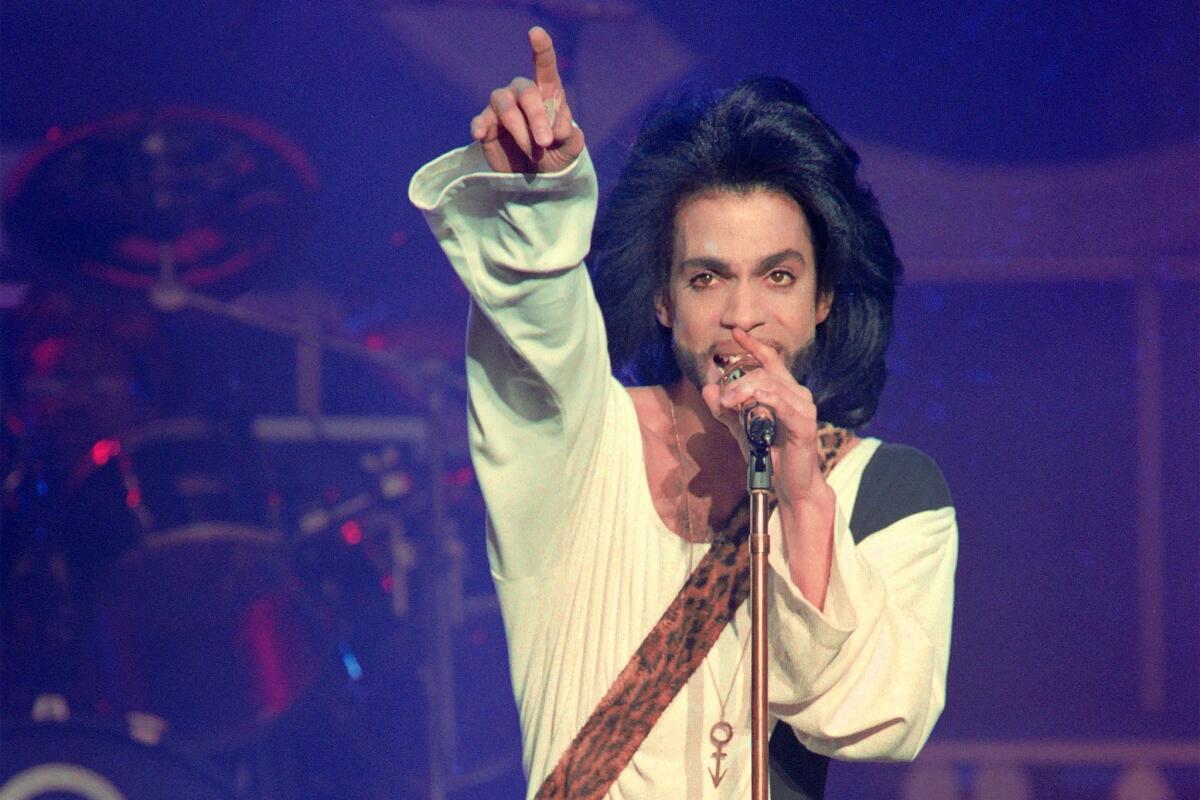Prince took a protective stance on music copyrights

Prince performs at the Parc des Princes stadium in Paris on June 16, 1990. The music pioneer died Thursday in Minnesota.
Prince was always known for doing things his own way, building a legacy as a dynamic performer, versatile musician and fashion hero.
But the artist, who died Thursday morning, also gained a reputation for the way he handled the business end of his career, fiercely guarding his copyrights in an effort to protect his catalog from the digital shifts in the music industry.
“Historically, Prince was exceedingly protective of his music,” said Larry Iser, an intellectual property lawyer at Kinsella Weitzman Iser Kump & Aldisert. “I for one would be very surprised if he didn’t have an estate plan in place to keep those restrictions intact.”
In recent years, Prince became one of the most high-profile holdouts from online music services, pulling his songs and albums from Spotify and other sites late last year in protest of the paltry royalties paid to artists. Videos using his music are also unusually hard to find on YouTube.
One well-known service houses his albums: Jay Z’s Tidal, which presents itself as being more friendly to artists than its bigger competitors, despite its early struggles to gain traction.
Exiting Spotify and other streamers was a noteworthy move at a time when more consumers are choosing to rent their music online rather than buy it. Even the Beatles have relented to the streaming wave.
But Prince has never shied away from high-profile fights over his music, in some cases even doing battle with his fans.
See the most-read stories in Entertainment this hour >>
In 2014, he famously filed a $22-million lawsuit against 22 people who allegedly posted links on social media sites to recordings of his live shows. He reportedly dropped the suit within days.
Yet his best-known, longest-lasting battle was with the record label Warner Bros.
The tensions first came to a head in 1994 when he dropped his name in favor of a symbol and appeared in public with the word “slave” written on his face to protest what he described as unfair treatment by the label.
He split with the company in 1996. But after 18 years of releasing his music independently and through unusual means, he returned to Warner Bros in a deal that gave him ownership of his catalog.
Spotify and Apple Music subscribers can’t access his music through those services, but they can get classic albums such as “Purple Rain” and “1999” through digital retailers such as iTunes.
People are clearly doing so. Shortly after the musician’s death became public, Prince’s albums surged to the top of iTunes’ sales charts. At last check, “The Very Best of Prince” ranked No. 1 on the album chart, while “Purple Rain” stood at No. 3.
Follow Ryan Faughnder on Twitter for more entertainment business coverage: @rfaughnder
MORE ON PRINCE
The world mourns the loss of Prince: Latest news and reactions
Prince gave black kids the license to be themselves, not what society thought they should be
Prince’s secret weapon: a versatility that united pop genres under one roof
More to Read
From the Oscars to the Emmys.
Get the Envelope newsletter for exclusive awards season coverage, behind-the-scenes stories from the Envelope podcast and columnist Glenn Whipp’s must-read analysis.
You may occasionally receive promotional content from the Los Angeles Times.







